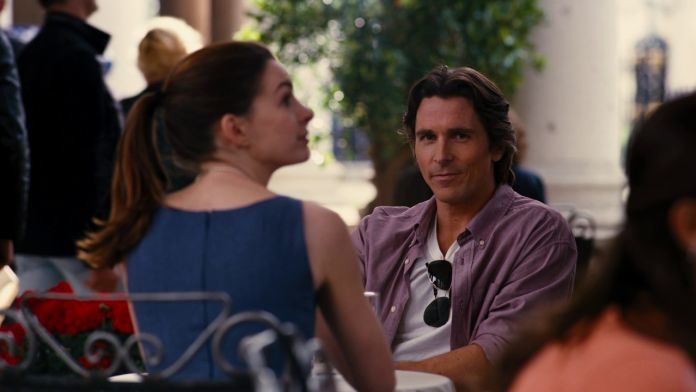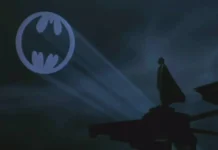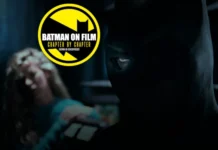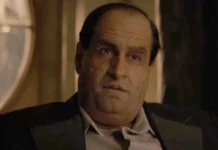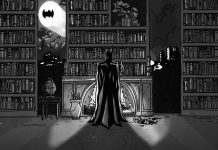By Ricky Church
It’s almost hard to believe we are now 10 years and two Batman reboots removed from the conclusion to Christopher Nolan’s epic Batman trilogy, THE DARK KNIGHT RISES. The film left quite an impact upon its release, one that can still be felt in certain ways today, and is notable for closing out one of the most successful and beloved film series in the modern landscape of the superhero genre.
When we last left Bruce Wayne at the end of THE DARK KNIGHT, he had just decided to take the blame for all of Harvey Dent’s murders as Two-Face in order to protect Dent’s legacy and ensure The Joker’s plan to cripple Gotham City’s soul didn’t come to fruition. Eight years later, Bruce has not only retired as Batman but is a virtual recluse from Gotham, rarely being seen even when he’s hosting extravagant galas at Wayne Manor. But when the new villain Bane comes along with a resurrected League of Shadows, Bruce must don the cape and cowl again in a battle that could very well be his last.
One of the most interesting aspects of RISES is its continued deconstruction of Bruce Wayne. The film asks “Who is Bruce Wayne without Batman?” and the answer we’re given, at least at the start of the film, is “not much.” Bruce begins RISES as a broken man because he’s still suffering from the loss of Rachel Dawes, who tragically died in TDK, but more so because he can’t lean on Batman to take out his rage and trauma as he’s done so many times in the comics. Batman’s status as an outstanding fugitive prevents him from doing so, but he and Commissioner Gordon also believe they saved Gotham from corruption by crushing the mob and enforcing the Dent Act, ridding them of the need for The Dark Knight.
What makes Bruce’s state of mind more intriguing is how prophetic Rachel’s words in TDK become. In her letter to Bruce, which Alfred burnt in order to save Bruce’s feelings, Rachel said one of the reasons she’s chosen Harvey over him is because she realized Bruce will never be able to live without being Batman. Even when he completed what he originally set out to do by destroying the mob and achieved victory if a pyrrhic one (or perhaps a Dark Victory?) he still is not content. It’s this thought that makes Alfred so against Bruce’s plans compared to the previous two films as, being the only person to have read Rachel’s letter, he’s seeing Bruce’s spiral play out in real-time as he realizes how right she was.
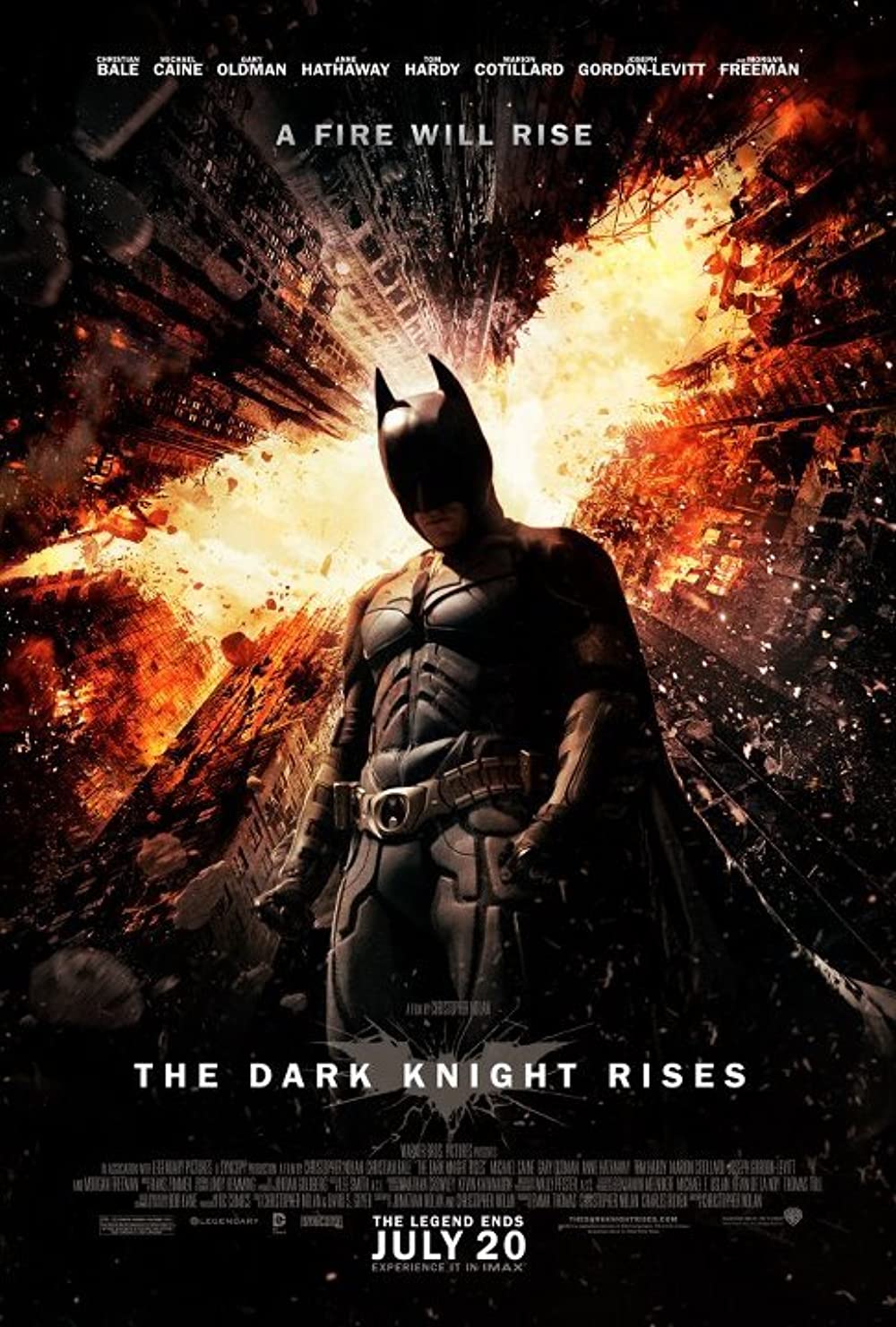 Bruce’s naivety throughout the course of the trilogy is one thing that separates him from his other live-action counterparts. Not only does he think he can stop being Batman, but he has an idealized view of romance as he’s loved Rachel his whole life, thinks she’ll readily leave Harvey for him and is completely unwilling to entertain the notion of finding love again after her death. It’s a stark contrast to Michael Keaton’s Bruce Wayne where despite his feelings for both Vicki Vale and Selina Kyle, he seems to have a more realistic outlook on his love life that his relationships are likely not to last due to being Batman.
Bruce’s naivety throughout the course of the trilogy is one thing that separates him from his other live-action counterparts. Not only does he think he can stop being Batman, but he has an idealized view of romance as he’s loved Rachel his whole life, thinks she’ll readily leave Harvey for him and is completely unwilling to entertain the notion of finding love again after her death. It’s a stark contrast to Michael Keaton’s Bruce Wayne where despite his feelings for both Vicki Vale and Selina Kyle, he seems to have a more realistic outlook on his love life that his relationships are likely not to last due to being Batman.
Bruce’s naivety even extends itself into arrogance at several points in the first half of the film. Even after eight years of retirement his skills as Batman still hold up against common thugs, but he’s completely unprepared for the powerhouse that is Bane, ignoring Alfred’s warning not to underestimate him. Bruce’s arrogance even leads him to dismiss Alfred once he learns the truth of Rachel’s letter. The arrogance costs him greatly as Bane utterly decimates him in their first fight, leading Bruce to be imprisoned and Gotham held hostage for months.
As painful as Bruce’s journey is throughout RISES, the film still builds him up and takes the finale back to one of BATMAN BEGINS’ central themes: Fear. As he suffers through multiple failed attempts to escape the pit, he learns from a fellow inmate it is not enough to be beyond fear, but one has to live with and accept it in order to truly be a stronger fighter. Christian Bale does wonders with his performance with how he plays Bruce’s realization and the scene of Bruce Wayne climbing out of the pit is one of the most cathartic moments in all of Batman history and makes for quite a parallel to BEGINS with how he fell in a pit and pretty much stayed there all his life until now.
Despite Bruce’s arrogance, naivety and self-sorrow though, one thing that stands clear of his arc in Rises (much less the rest of the trilogy) is his optimism. Bruce never stops hoping for what Gotham can be or what Batman can stand for and goes on to inspire several people throughout the film. Even after betraying him, Bruce still believes Selina Kyle is a good person and she’ll do right by Gotham. His return inspires Mathew Modine’s Captain Foley from a career-driven Batman-hating officer to someone willing to (and ultimately does) lay down their life for Gotham as well as hundreds of cops who follow him into the climactic battle against Bane’s forces. And then there is Gordon, played by the trilogy’s MVP Gary Oldman, who Batman reveals is the one to have actually inspired him all those years ago in the wake of his parent’s murder.
Bruce’s optimism ultimately wins out both in saving Gotham and renewing his purpose and desire for life. The film’s final revelation that he had faked his death in order to live the life Alfred wanted for him with Selina while inspiring John Blake to possibly become the next Batman ends on quite a hopeful and uplifting note in the film’s rather dour story. It serves to show something people often forget about Batman: Despite his fearful appearance and methods, Batman is one of the most hopeful heroes in the DCU. THE DARK KNIGHT RISES showcased that beautifully, putting a nice emotional cap on Christopher Nolan’s DARK KNIGHT TRILOGY. – Ricky Church
Ricky Church is a screenwriter and is also an avid film, television, and comic book fan. He is a contributing writer for Batman on Film and Flickering Myth. Follow him on Twitter @RICHARDCHURCH16.


